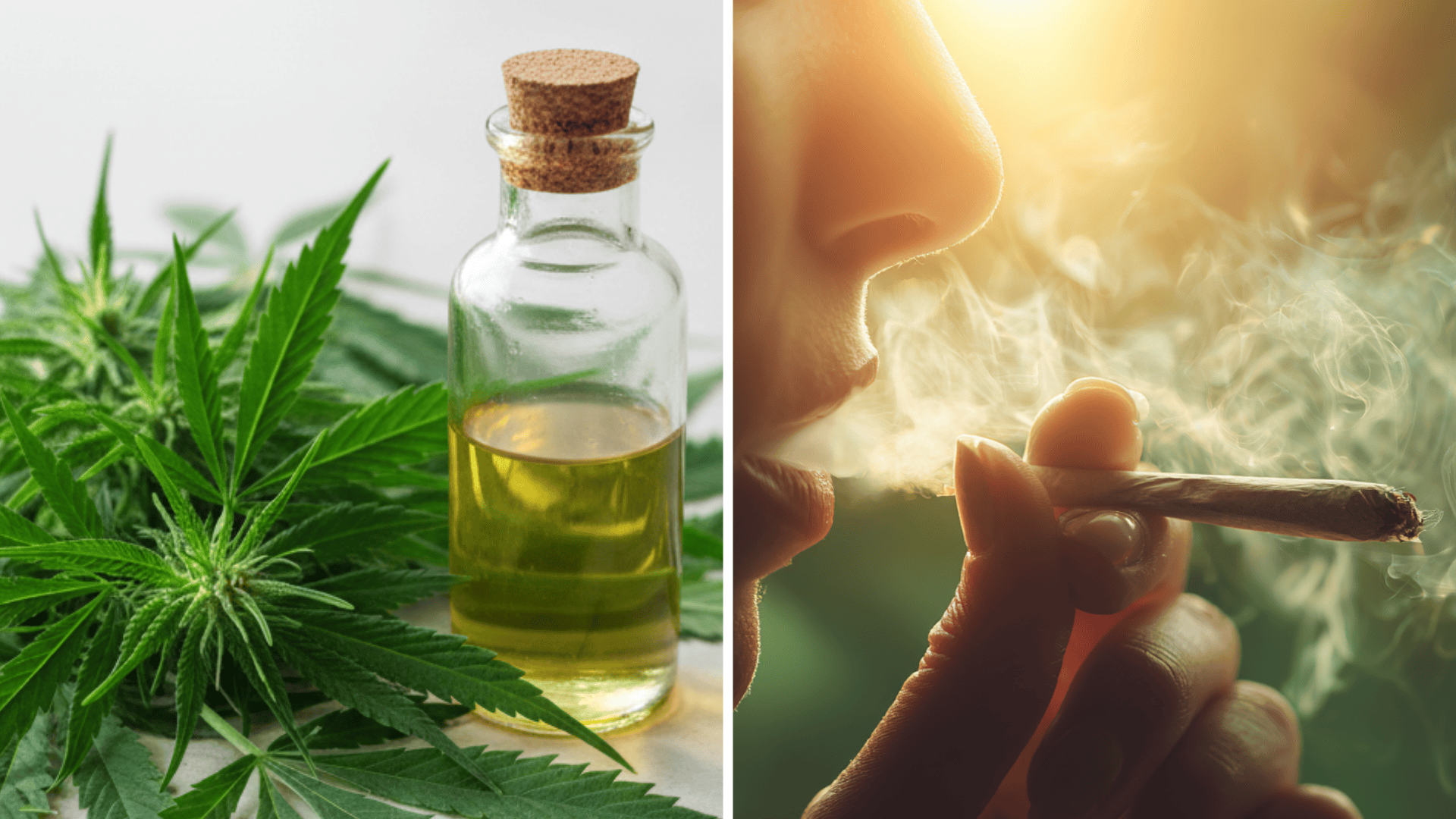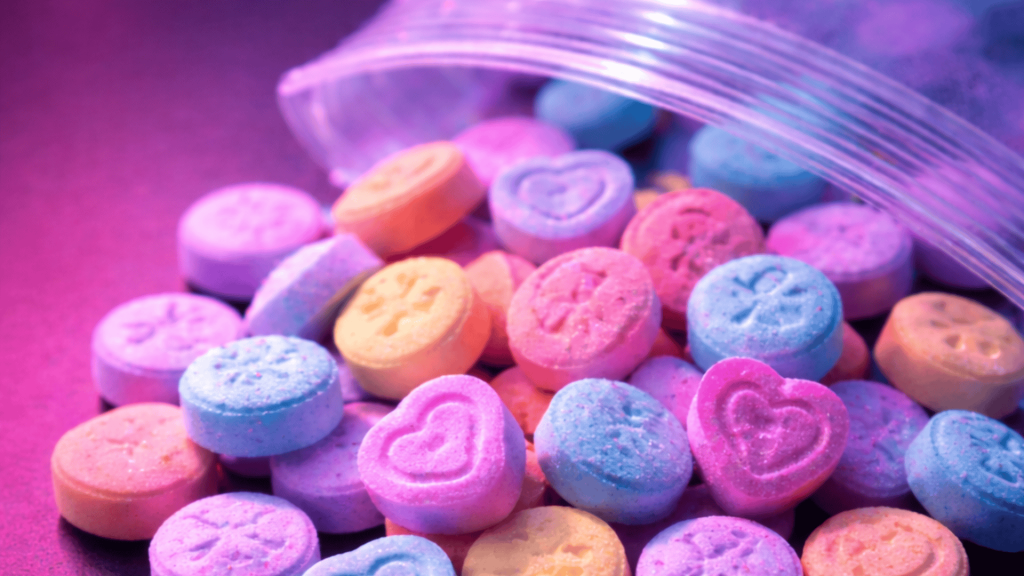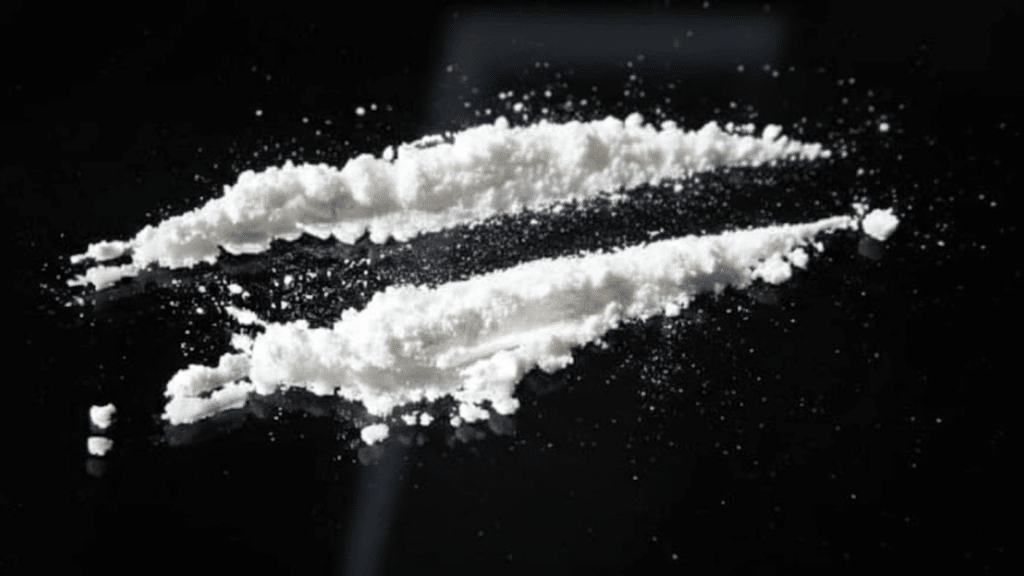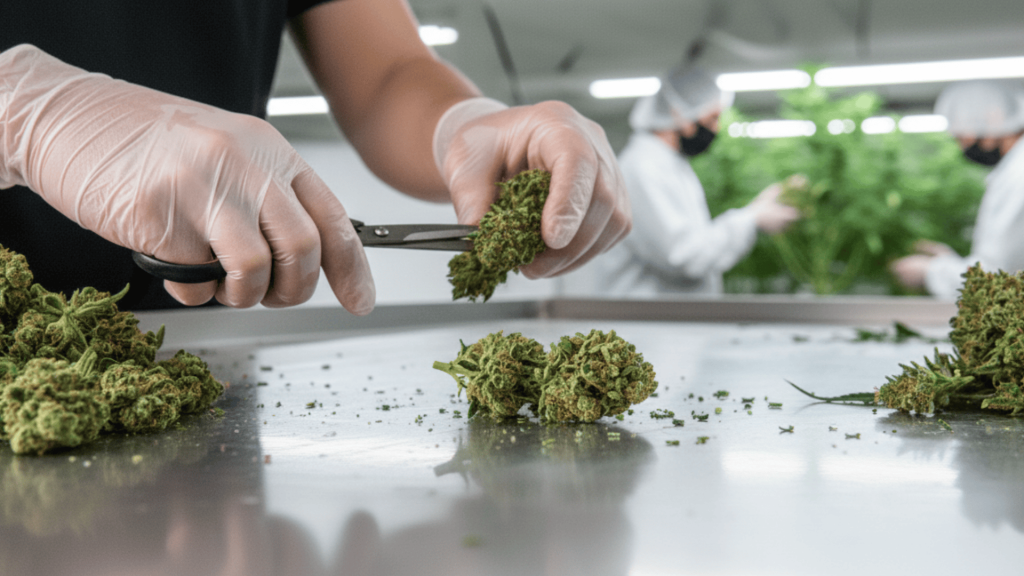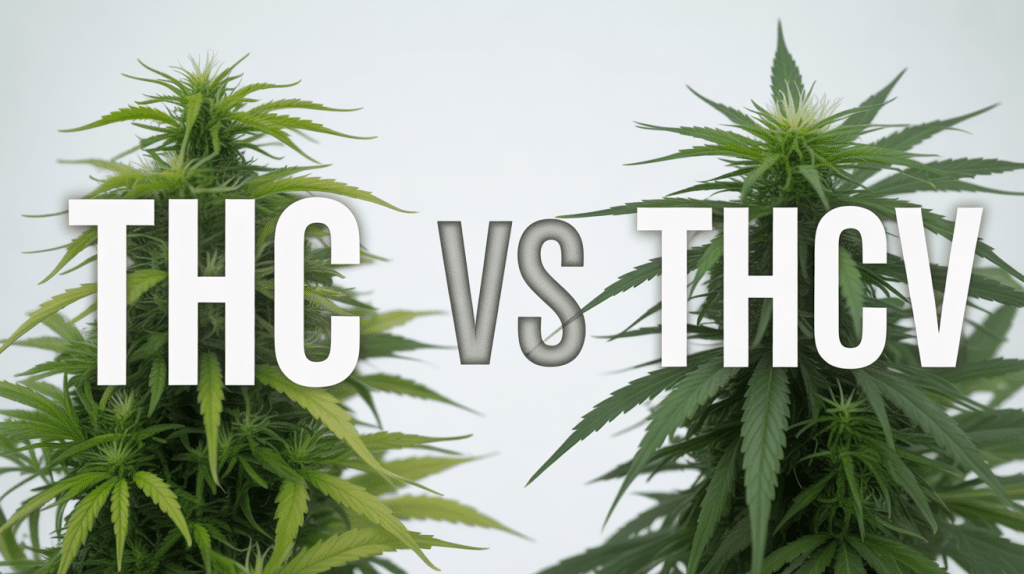If you’ve ever looked into cannabis products, you’ve probably seen the terms THCA and THC and wondered what the difference is. I’ve seen many people get confused because the names are so similar.
But as I learned (and as you’ll see), those two compounds are quite different in how they work, how they affect your body, and what the law says about them.
By understanding how THCA converts into THC, what each one does, and how they’re handled legally, you’ll be better placed to choose whether you’re looking for wellness support or a fuller effect.
Disclaimer: This content is for informational purposes only and not medical or legal advice. Cannabis laws vary, so check your local regulations before use. Always consult a healthcare professional.
What is THCA?
THCA stands for tetrahydrocannabinolic acid. It’s the raw form of THC found in fresh cannabis plants and undried flower.
In other words, before any heat or processing, the plant largely contains THCA rather than active THC. When the plant is heated or aged, THCA can lose a chemical piece and become THC.
One of the biggest things to understand: THCA in its natural state is not psychoactive; it won’t get you “high.” That’s because THCA doesn’t bind well to the brain’s cannabinoid receptors the way THC does.
Potential health benefits: Early research hints that THCA may have useful wellness properties like anti-inflammatory and neuroprotective effects.
For example, some studies show it could help with nausea or support neurological health. (The research is early, so it’s wise to stay cautious.)
In my experience, if you’re looking for the benefits of cannabis without the high, THCA is the spot you’ll want to explore.
What is THC?
THC stands for tetrahydrocannabinol. This is the compound most people associate with cannabis because it’s the one that causes the “high.”
THC is formed when THCA undergoes a process called decarboxylation, basically losing a small chemical group (thanks to heat or aging) and becoming active.
After that conversion, THC is able to bind to CB1 cannabinoid receptors in the brain, causing effects such as euphoria, altered perception, appetite increase, relaxation, and sometimes anxiety, depending on dose and situation.
Therapeutic uses: Beyond the high, THC is also used for medical purposes. It can help with pain relief, stimulate appetite (especially in conditions like chemotherapy side-effects), support sleep, and reduce muscle spasms.
So if you’re after the classic cannabis experience, both for recreation and therapeutic uses, THC is the main player.
THCA vs. THC’s Key Differences
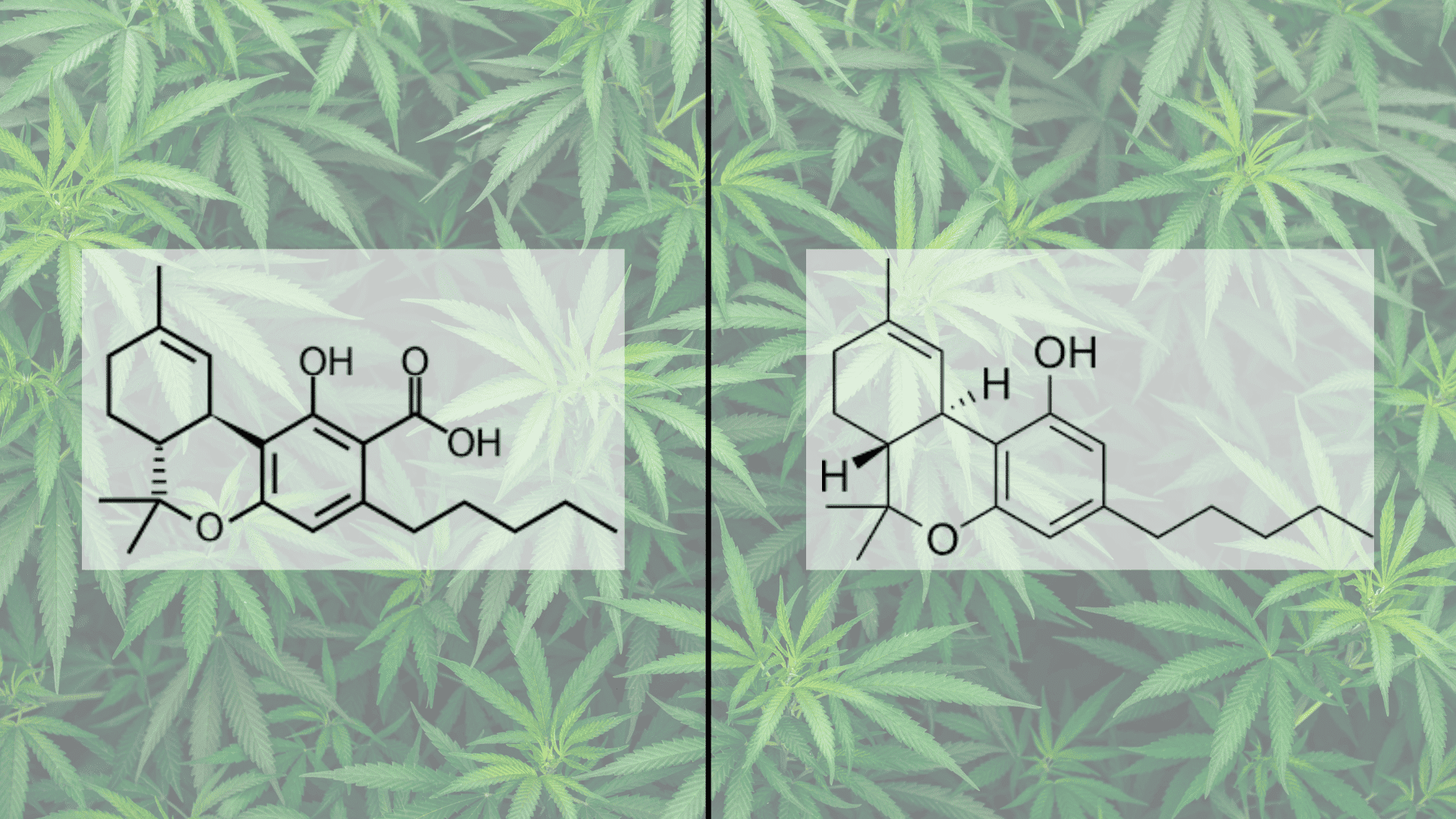
| Feature | THCA | THC |
|---|---|---|
| Psychoactivity | Non-psychoactive (raw form) | Psychoactive (after heating) |
| Chemical structure | Has an extra carboxyl group (COOH) | Lacks that group (after decarb) |
| Legality | Often in a legal grey area | Heavily regulated |
| Consumption method | Raw / non-heated (juicing, capsules) | Heated: smoking, edibles, vaping |
| Medical benefits | Anti-inflammatory, neuroprotective (early research) | Pain relief, appetite, sleep, mood |
| Risks | Minimal in raw form | Dry mouth, paranoia, impaired coordination |
THCA and THC look very similar at first glance, but the little chemical difference and how they’re used make a big impact. If you’ll use it without heat, you’re in THCA territory. Once heat comes in, you’re dealing with THC effects.
How THCA Converts to THC (Decarboxylation)

Here’s how THCA becomes THC, a process that matters a lot for how you’ll experience things.
When cannabis plant material is heated (for example, by smoking, vaping, or baking in an edible), the THCA molecule loses a carboxyl group (COOH). That chemical reaction is called decarboxylation.
Once it loses that group, the molecule turns into THC and becomes active in new ways.
Heat is the key trigger, though slight conversion can happen over time, even at room temperature. So when you see “THCA flower,” know that if you apply heat to it, it will turn into THC and become psychoactive.
In my view, knowing this helps you choose the right product and know exactly how you’ll feel.
THCA in the Body: Gentle Support, Clear Mind
THCA is the non-psychoactive precursor to THC, meaning it won’t cause intoxication unless heated. It interacts with the body differently, offering subtle physiological support without a “high.”
Research in Biochimica et Biophysica Acta – Molecular and Cell Biology of Lipids (Moreno et al., 2019) shows THCA may reduce inflammation and oxidative stress.
Similarly, Frontiers in Pharmacology (Barreto et al., 2022) notes its potential neuroprotective role in degenerative conditions.
Early findings summarized by Medx (2024) also point to anti-nausea benefits and overall cellular balance. Because THCA doesn’t activate CB1 receptors directly, users often find it suitable for daytime focus and wellness routines.
In my experience, people looking for natural support with minimal side effects lean toward THCA for its clear-headed relief and gentle impact.
THC in the Body: Potent Relief, Psychoactive Effects
When heated or aged, THCA converts to THC, which binds to CB1 receptors in the brain and alters perception, mood, and sensation.
Studies in Frontiers in Pharmacology (Vučković et al., 2018) and BMJ Open (Hauser et al., 2024) report that THC can ease chronic pain and improve quality of life.
A large-scale analysis by Pain News Network (2025) also found that patients using medical cannabis experienced fewer emergency visits and better pain control.
For appetite and relaxation, findings from Harvard Health Publishing (2022) show THC can support rest, recovery, and positive mood when dosed responsibly.
If you’re comfortable with its psychoactive nature and local regulations, THC offers robust relief for both physical and emotional strain.
Potential Side Effects of THC and THCA
THC’s psychoactivity comes with possible downsides. Overuse can cause:
- Paranoia or anxiety in high doses
- Dry mouth, red eyes, or increased heart rate
- Impaired coordination or concentration
- Dependence risk with long-term use
A review in Pharmaceuticals (MDPI) (Crippa et al., 2023) outlines these risks and emphasizes responsible dosing.
For THCA, raw forms show minimal side effects, but once heated and converted to THC, they share the same psychoactive profile. Knowing how your product is processed and consumed is key to managing its effects
Understanding Legal Differences Between THC vs. THCA
Legal rules around THCA and THC can be confusing. Here’s a clear look at where they stand, especially in the U.S.
At the federal level, the Agriculture Improvement Act of 2018 (often called the “Farm Bill”) legalized hemp, defined as cannabis with less than 0.3% delta-9 THC by dry weight. THC derived from marijuana (above that limit) remains federally illegal in many cases.
THCA lies in a grey zone. Because it is non-psychoactive in raw form, some products market high THCA flower as “legal hemp” even though it can convert to THC when heated. That creates regulatory blur.
State laws vary widely. Some states allow full adult-use recreational cannabis (with THC), others permit medical use only, and some restrict THCA or hemp products tightly. Always check local rules before purchasing.
As I see it, one of the most important steps you can take is to verify product lab results and legal status locally, especially if you live where regulations are strict.
How to Consume THCA and THC
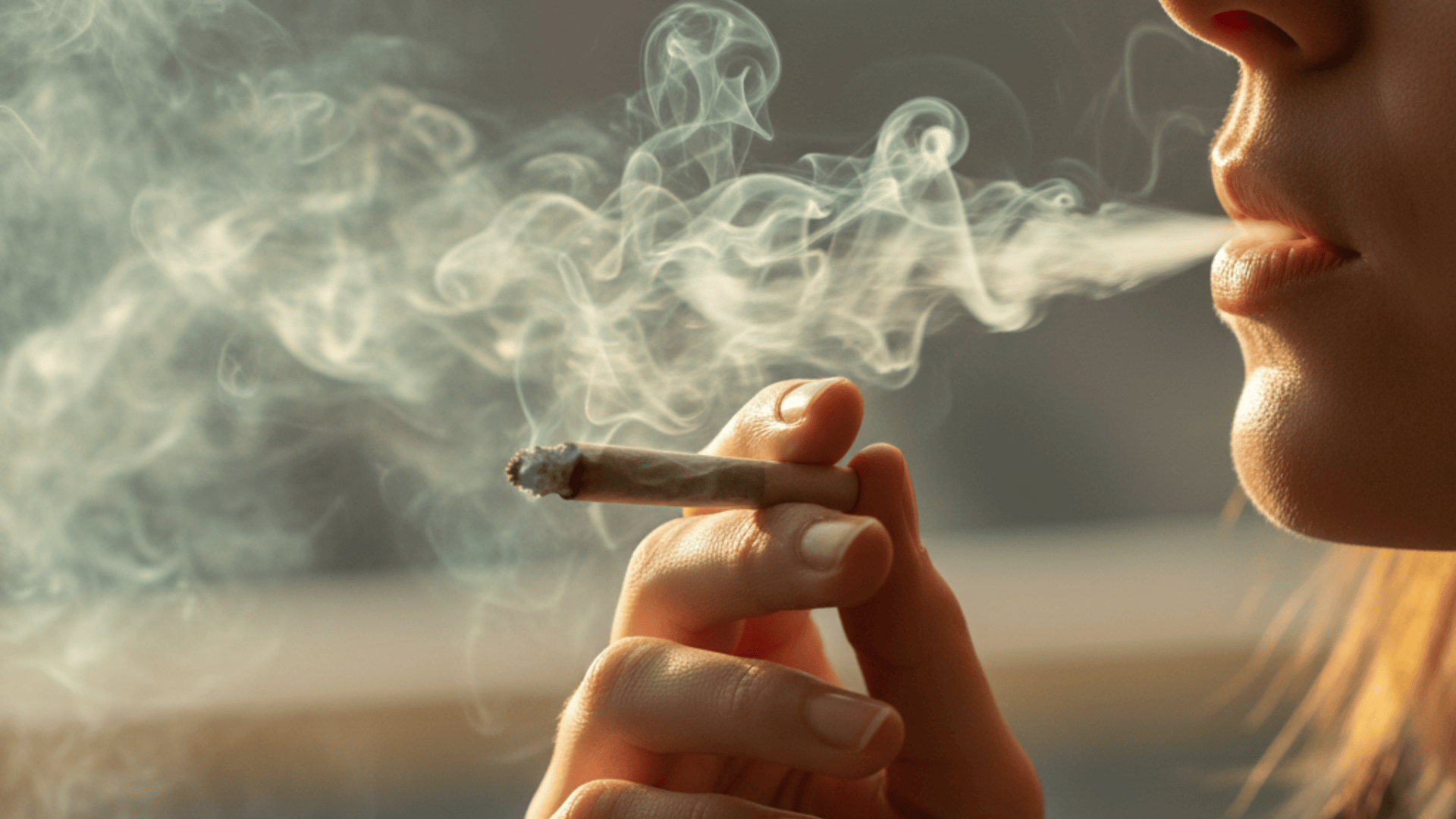
THCA Consumption
If you’re using THCA and want to keep it non-intoxicating:
- Eat raw cannabis flower (e.g., in salads or smoothies)
- Use THCA capsules or tinctures designed without heat
- Avoid smoking, vaping, or baking if you want to preserve THCA form
This lets you potentially gain wellness support without the high.
THC Consumption
To activate THC, you’ll need heat:
- Smoking or vaping cannabis flower or concentrate
- Edibles made with decarboxylated THC oil or butter
- Oils or tinctures where THC has been activated
When you heat THCA or raw flower into THC, that’s when the psychoactive effects kick in. One tip: dosing matters, especially with edibles, since onset is slower and effects stronger in some cases.
Which is Stronger: THCA or THC?
This question comes up a lot: “Which is stronger?”
Straight up: THC is stronger in the sense of producing an intoxicating effect. THCA by itself does not cause a “high” unless you convert it to THC via heat. So in raw form, THCA won’t give you the typical cannabis high.
But if you heat THCA flower, it can convert into THC and yield strong effects similar to typical THC products.
Strength, therefore, depends on conversion, dosage, and how the product is used. If you’re choosing a product, it’s wise to consider how much conversion happens and how you’ll consume it.
THCA, THC, and Drug Testing
Here’s what you need to know about testing. Even if you consume THCA in its raw form and do not apply heat (smoke or bake) and convert it into THC, you can test positive for THC.
Many drug tests detect THC metabolites or delta-9 THC levels, not necessarily THCA. How long THC stays in your system depends on usage frequency, dosage, and your metabolism.
If you live or work somewhere with strict testing policies, it’s safest to assume that products that can convert to THC may trigger a positive test.
I recommend checking the product’s lab results and understanding the implications before use.
Choosing Between THCA and THC
How do you pick which one is right for you?
- If you’re focused on wellness, minimal psychoactivity, and staying clear-headed, try THCA in its non-heated form.
- If you’re seeking stronger effects, recreation, or certain therapeutic goals (pain relief, sleep, appetite), then THC might be your pick.
Always consider legal status, dosage, how you’ll consume, and how your body responds. And, if possible, consult a healthcare professional, especially if you have health conditions or take medications.
It’s your experience, so choosing consciously helps you stay safe and satisfied.
Expert Tips and Common Myths
Let’s bust a few myths and wrap up with helpful tips.
| Myth | Clarification |
|---|---|
| “THCA is just THC in disguise.” | THCA is the non-psychoactive precursor; it only acts like THC after conversion. |
| “Raw cannabis does nothing.” | Raw THCA won’t get you high, but it may still offer wellness benefits (research is still early). |
Always check lab testing; look for “total THC” (which counts possible conversion) and ensure accurate labeling. When trying a new product, start low and go slow.
Conclusion
THCA and THC may share similar names, but how they work in your body and how they’re regulated are worlds apart.
THCA offers potential wellness support without psychoactive effects, while THC delivers the familiar high and deeper therapeutic relief.
The real key is understanding how THCA converts into THC and choosing products that align with your goals, tolerance, and local laws.
In my experience, being informed about both helps you stay safe, intentional, and get the results you actually want.
If you’re ready to learn more about safe cannabis use and product selection, start by checking verified lab results and exploring trusted wellness sources today.

